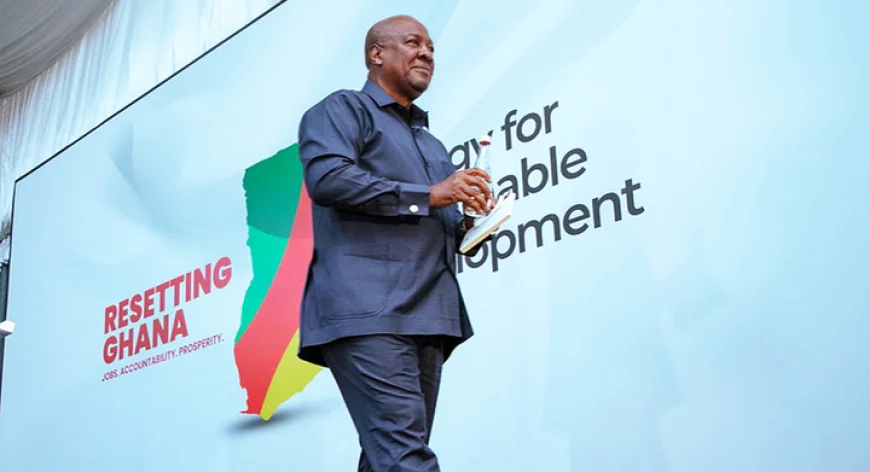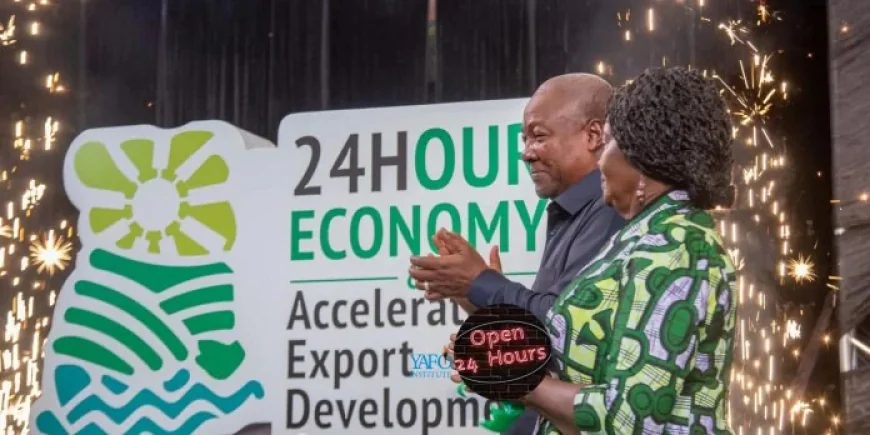Ghana Secures $500 Million BADEA Financing to Power 24-Hour Economy Initiative
Ghana has taken a bold step toward economic transformation with the signing of a $500 million financing agreement with the Arab Bank for Economic Development in Africa (BADEA). The deal, unveiled at the Bank of Ghana headquarters, is set to fuel the government’s flagship 24-Hour Economy initiative, aimed at expanding productivity and employment across key sectors.
Ghana has taken a bold step toward economic transformation with the signing of a $500 million financing agreement with the Arab Bank for Economic Development in Africa (BADEA). The deal, unveiled at the Bank of Ghana headquarters, is set to fuel the government’s flagship 24-Hour Economy initiative, aimed at expanding productivity and employment across key sectors.
The Memorandum of Understanding (MoU) outlines an initial $60 million disbursement through Development Bank Ghana (DBG), which will be directed toward small and medium-sized enterprises (SMEs). Additional financial institutions are expected to join in future phases, broadening access to capital for businesses operating beyond traditional hours. “This partnership transcends traditional commodity financing and signals BADEA’s commitment to supporting Ghana’s economic transformation agenda,” said BADEA President Abdullah KH Almusaibeeh during the signing ceremony.
Qualifying businesses will benefit from concessional loans with interest rates below 12%, and repayment periods ranging from five to seven years. The financing package also includes an equity component targeting youth and women-led enterprises, supported by credit guarantees and insurance mechanisms developed in collaboration with GIRSAL (Ghana Incentive-Based Risk Sharing System for Agricultural Lending).
Presidential Advisor on the 24-Hour Economy, Goosie Tanoh, emphasized that the funds will be channeled through private sector institutions, not government accounts—a structure designed to reassure international investors about fiscal discipline and transparency.
He described the arrangement as part of “Fund24”, the financial backbone of the broader initiative, which aims to create a pipeline of investment-ready enterprises capable of competing in regional and global markets.
Programme officials project that the facility could mobilize over $18 billion in SME financing by 2030, with a focus on strengthening agro-processing, logistics, and other value chains. The 24-Hour Economy concept envisions extending productive activity beyond conventional business hours to maximize output and job creation in sectors such as manufacturing, services, and agriculture.
Finance Minister Dr. Cassiel Ato Forson assured that Ghana’s borrowing strategy remains focused on transformation. He noted that the country’s public debt declined from GH¢763.8 billion (64.9% of GDP) in July 2024 to GH¢628.8 billion (44.9% of GDP) in July 2025, reflecting significant progress in debt sustainability. “New borrowing will be directed strictly towards projects with lasting economic and social impact,” Forson stated during his meeting with the BADEA President.
The BADEA partnership complements earlier agreements with the African Development Bank, signaling growing global confidence in Ghana’s reform agenda. Mr. Almusaibeeh pledged continued support for large-scale projects aligned with sustainability and transformation goals.




